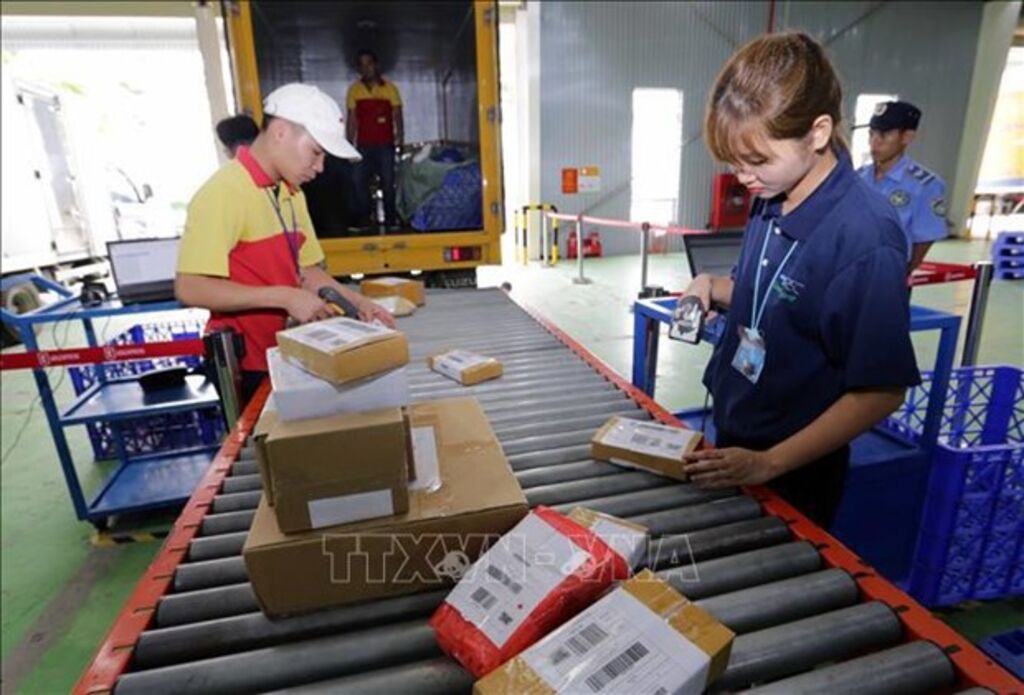 |
| Goods classification of Lazada e-commerce platform__Photo: VNA |
Since the outbreak of the COVID-19 pandemic, the shift towards a digital economy and changing consumer shopping trends have contributed to boosting exports and goods consumption, helping the Vietnamese products reach distant markets, according to experts.
In particular, many businesses have experienced sales increases of up to 70-80 percent when joining cross-border e-commerce platforms. This demonstrates that digital transformation and technological application have enhanced the value and competitiveness of products in the international market, as well as saved time and operational costs.
Nguyen Van Thanh, Director of the E-commerce Development Centre under the Ministry of Industry and Trade (MoIT)’s Vietnam E-commerce and Digital Economy Agency, said last year, while online retail sales in Vietnam reached USD 16.4 billion, the Vietnamese digital economy was nearly USD 23 billion, which is projected to reach USD 49 billion by 2025.
Recently, regulatory authorities have partnered with online giant retailers such as Amazon and Alibaba to hold training courses aimed at equipping the Vietnamese micro, small, and medium-sized enterprises (MSMEs) with export knowledge and skills. Last year, as many as 1,300 MSMEs benefited from the courses and set up stalls on Amazon and Alibaba.
Statistics showed that the northern mountainous province of Son La is home to around 3,250 firms and 806 cooperatives which have utilized social media and e-commerce platforms to promote and sell farm produce. Since early this year, more than 500 tons of fruits from Son La farmers have been sold through e-commerce platforms.
To improve the effectiveness of exporting and selling Vietnamese goods through e-commerce, the MoIT has partnered with localities to hold various e-commerce connectivity schemes, helping thousands of businesses access distribution methods and cultivate a habit of online shopping.
In the near future, the MoIT will also continue focusing on improving the application capacity and developing e-commerce, especially cross-border e-commerce.- (VNA/VLLF)









